Latest DePIN AI News
View AI Projects
a year ago
Aethir Shifts Focus from Gaming to AI Computing Amid Geopolitical Tensions
Aethir, co-founded in 2022, has recently shifted its focus from cloud gaming to artificial intelligence (AI) computing, as explained by co-founder Mark Rydon during the Consensus Hong Kong event. Initially designed to utilize idle Graphics Processing Units (GPUs) for gaming, Aethir recognized the burgeoning demand for compute power in the AI sector. This pivot comes amid rising geopolitical tensions between the U.S. and China, which have further complicated access to advanced GPU technology. The decentralized nature of Aethir's platform allows it to serve as a marketplace for GPU compute, catering to businesses that require on-demand capacity without the burden of maintaining their own hardware.
The evolution of GPUs from gaming to AI has been significant, with companies like Nvidia leading the charge. Rydon noted that while Aethir started within a gaming context, the enterprise-capable GPU cloud they were developing proved to be highly relevant to AI applications. The AI server industry is projected to be worth $205 billion, showcasing the lucrative potential of this market. Aethir's decentralized approach not only democratizes access to high-performance computing but also addresses the needs of researchers who may lack the resources to invest in their own infrastructure.
However, Aethir's operations are not entirely permissionless. Due to U.S. export controls, the company has implemented geofencing measures to prevent access to its high-performance computing resources from regions like China. Rydon emphasized the importance of regulatory compliance and the necessity of a Web2 layer to manage service agreements and Know Your Customer (KYC) processes. This structured approach is essential for securing significant business deals while navigating the complexities of the current geopolitical landscape.
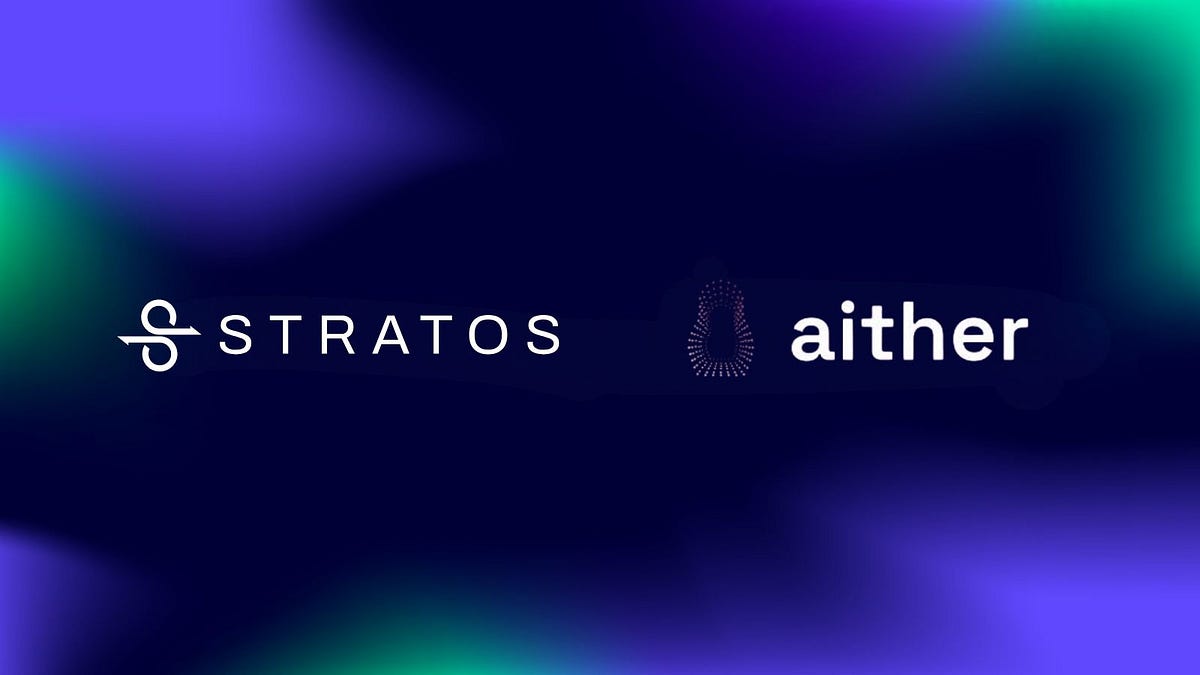
a year ago
Stratos and AITHER Partner to Revolutionize AI Infrastructure
In an exciting development for the intersection of artificial intelligence and decentralized technology, Stratos has announced a partnership with AITHER, the creators of a next-generation AI infrastructure. This collaboration aims to accelerate advancements in AI and decentralized systems by integrating their innovative technologies. AITHER's Agent Virtual Machine (AVM) is designed to redefine AI infrastructure, providing a layer-zero framework that enables scalable and collaborative AI agents. This system simplifies AI development through high-level abstractions, making complex agent code more manageable while ensuring that all operations are traceable and observable.
Stratos complements AITHER's vision by empowering Web 3.0 builders and decentralized applications (dApps) with its comprehensive decentralized infrastructure network. With over 900 storage nodes and a capacity nearing 21 PB, Stratos offers scalable and reliable decentralized storage, computing, and database solutions. Its unique Proof-of-Traffic consensus model incentivizes network nodes, enhancing performance while maintaining privacy and trustless operations. By leveraging Stratos's infrastructure, AI developers can efficiently store and process massive datasets, which are crucial for training advanced AI models.
The partnership between AITHER and Stratos promises to unlock new possibilities for AI agent development and deployment. By integrating Stratos's Decentralized Storage Network into AITHER's AVM ecosystem, they aim to enhance security and scalability for AI operations globally. This collaboration will provide robust and trustless data storage solutions, ensuring data integrity and accessibility for AI agents. Together, AITHER and Stratos are committed to driving the next generation of AI and decentralized technology, building a future where AI agents operate with enhanced security, transparency, and efficiency, all powered by decentralized systems that prioritize privacy and trust.

a year ago
Top Cryptocurrencies to Watch in 2025
As 2025 begins, investors are keenly exploring cryptocurrencies that promise transformative gains. The market is rich with opportunities, and several tokens are emerging as frontrunners due to their innovative technologies and robust growth potential. Notable mentions include Lightchain AI (LCAI), Hedera (HBAR), Polkadot (DOT), Theta Network (THETA), and VeChain (VET). These cryptocurrencies are characterized by their cutting-edge technology, strong ecosystems, and significant upside potential, making them attractive options for January 2025.
Lightchain AI (LCAI) is at the forefront of integrating artificial intelligence with blockchain technology. It aims to set a new standard for decentralized applications and governance through its Memecoin Launchpad, which empowers developers with AI-driven tools to innovate and monetize in a secure environment. The platform employs a Proof of Intelligence (PoI) consensus mechanism to ensure network security while rewarding meaningful AI computations. Additionally, advanced scalability solutions such as sharding and Layer 2 technology enhance performance for complex AI workloads, while privacy measures like Zero-Knowledge Proofs (ZKPs) and homomorphic encryption protect data throughout the process.
Hedera (HBAR) and Polkadot (DOT) are also making significant strides in blockchain innovation. Hedera utilizes a unique consensus method called Hashgraph, which facilitates quick transaction flows and enhances security, making it ideal for applications requiring fast and fair processing. In contrast, Polkadot focuses on interoperability, allowing seamless communication across different blockchains through its relay chain and specialized parachains. Meanwhile, Theta Network (THETA) revolutionizes video streaming by incentivizing users to share resources, and VeChain (VET) enhances supply chain management through improved transparency and traceability. Together, these platforms showcase the diverse applications of blockchain technology and its potential to address industry-specific challenges.
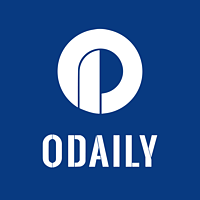
a year ago
ArkStream Capital Invests $30 Million in IO.Net to Decentralize GPU Computing
ArkStream Capital has recently completed a significant Series A investment in IO.Net, raising a total of $30 million. This funding round was led by Hack VC and included participation from over 20 prominent venture capitalists and angel investors from both domestic and international markets. This investment marks a strategic move by ArkStream Capital into the realms of artificial intelligence (AI) and decentralized infrastructure (DePIN), reflecting a strong belief that AI will be at the forefront of innovation in the current market cycle.
IO.Net aims to address the burgeoning demand for computing power driven by the rapid advancement of AI technologies. As tech giants scramble to acquire Nvidia GPUs to train large language models, the need for GPU resources has skyrocketed. IO.Net proposes a decentralized solution to the global GPU shortage by leveraging human collaboration and encryption technology, effectively creating a platform that operates similarly to Airbnb but for GPUs. By utilizing the Solana blockchain, IO.Net facilitates a permissionless environment for sharing computing resources, which includes data centers and high-performance workstations, thus tapping into previously idle GPU capacities.
The advantages of IO.Net are compelling, offering customers a cost-effective alternative to traditional cloud services while incentivizing GPU providers through the upcoming IO token. With plans to expand its GPU network to 500,000 concurrent GPUs, IO.Net is positioning itself as a formidable competitor to centralized cloud providers. Collaborations with major players in the DePIN and AI sectors further solidify its status as a key player in the decentralized GPU network landscape. ArkStream Capital's investment underscores a strong confidence in IO.Net's potential to lead the way in the evolving AI and decentralized technology ecosystem.

a year ago
2025: A Pivotal Year for Blockchain and AI Integration
As we enter 2025, the cryptocurrency and blockchain sectors are poised for significant transformation, driven by a blend of macroeconomic factors, regulatory progress, and technological advancements. Insights from Messari and Coinbase indicate that this year could be pivotal for the evolution of Web3, AI, and decentralized infrastructure. Fog Works is at the forefront of this movement, focusing on innovation, sustainability, and community engagement to redefine the digital landscape. The increasing clarity in regulatory frameworks, especially in the U.S. and Europe, is expected to catalyze institutional adoption and innovation, with Coinbase predicting a rise in regulated financial products, including tokenized securities and compliant DeFi solutions.
One of the most notable trends is the integration of AI with blockchain technology. Messari highlights the potential for decentralized AI systems to transform data management and privacy-centric applications. Fog Works is aligning its advancements in AI-enabled personal storage with this trend, emphasizing the importance of decentralized physical infrastructure networks (DePIN) as a critical layer in the Web3 ecosystem. As users seek alternatives to centralized tech giants, companies deploying real-world applications for data storage and IoT are expected to thrive. Additionally, NFTs are evolving beyond art into areas like music royalties and real estate tokenization, necessitating secure, decentralized storage solutions.
Fog Works' achievements in 2024 set a strong foundation for 2025. The company has made significant strides in product innovation, market expansion, and community building. Notable advancements include the Foggie Max backup system, which enhances data security and sharing capabilities, and the integration of AI-powered features that allow users to create personal knowledge bases. With a focus on sustainability, Fog Works aims to adopt energy-efficient technologies and forge partnerships that promote greener blockchain practices. As the market landscape continues to evolve, Fog Works is well-positioned to lead the charge in the decentralized future of technology.

a year ago
Decentralized Infrastructure Networks: A Game Changer for AI Development
The data center industry is currently facing significant challenges in meeting the immense computing power requirements of artificial intelligence (AI), particularly for training large language models (LLMs). According to Bain & Company, advanced AI models necessitate thousands of graphics processing units (GPUs) during the pre-training phase, which in turn demands highly sophisticated data center architectures. Presently, major cloud service providers operate hyperscale data centers with capacities ranging from 50 to 200 megawatts, costing between $1 billion to $4 billion. However, projections indicate that by the end of the decade, these capacities will need to scale up to over 1 gigawatt, with costs soaring to between $10 billion and $25 billion. This situation is compounded by the dominance of tech giants like Alphabet, Microsoft, Amazon Web Services (AWS), and Alibaba, which limits opportunities for smaller competitors to build comparable infrastructures.
To address these challenges, decentralized physical infrastructure networks (DePIN) have emerged as a potential solution. DePIN aggregates small-scale computing resources, democratizing access to AI infrastructure and reducing reliance on major tech companies. By utilizing blockchain technology, tokenization, and decentralized governance, DePIN incentivizes participation from individuals and organizations, enabling them to contribute physical resources such as data storage, energy generation, and computing power. This decentralized approach not only enhances transparency and security but also allows for real-time data processing through edge AI, which deploys AI algorithms directly on devices at the network's edge, thereby alleviating the burden on centralized cloud networks.
Looking ahead to 2025, DePIN is poised to fundamentally transform the AI landscape. Experts predict a massive scaling of decentralized compute networks, shifting AI model training from centralized supercomputing clusters to distributed networks powered by DePIN. Additionally, tokenized incentives will encourage broader participation in AI development, allowing smaller players to monetize their resources while contributing to global innovation. Furthermore, the decentralized nature of DePIN enhances security and privacy, addressing vulnerabilities associated with centralized infrastructures. As DePIN matures, it is expected to facilitate groundbreaking applications across various sectors, including healthcare and energy management, while ensuring that AI infrastructure remains accessible to startups and researchers, thus fostering a more equitable technological ecosystem.

a year ago
Aethir and Injective Launch Tokenized GPU Marketplace to Enhance AI and Blockchain Innovation
Aethir and Injective have announced a groundbreaking partnership that aims to revolutionize the accessibility of high-performance GPU resources through the launch of the world’s first tokenized GPU marketplace. Aethir, a leader in high-performance computing infrastructure, and Injective, a prominent decentralized exchange platform, are combining their strengths to create a platform that caters to the growing demands of AI research and blockchain applications. High-performance computing (HPC) is essential for processing vast amounts of data quickly, which is crucial for complex tasks such as scientific simulations and AI development.
The new marketplace will enable developers, researchers, and GPU resource providers to engage in a novel interaction model that leverages tokenization. By utilizing Injective's advanced blockchain technology alongside Aethir's GPU processing capabilities, the marketplace will facilitate automated transactions through smart contracts, allowing for fractional ownership and real-time trading of GPU resources. This innovative approach eliminates the need for hefty hardware investments, enabling users to access high-performance computing resources on a pay-as-you-go basis. Users will have the flexibility to buy, sell, or lease tokenized GPU power, integrating it into various on-chain applications, including decentralized lending protocols and perpetual markets.
The implications of this partnership extend beyond just AI and blockchain; it could significantly impact the broader GPU market as well. With NVIDIA at the forefront of GPU technology, the demand for decentralized GPU computing is likely to grow as initiatives like Aethir and Injective's marketplace gain traction. While the current market interest in their respective tokens remains subdued, the potential for future growth is evident. As users navigate this new landscape, caution is advised to mitigate risks associated with tokenized transactions, emphasizing the importance of relying on official project announcements and trusted sources for information.
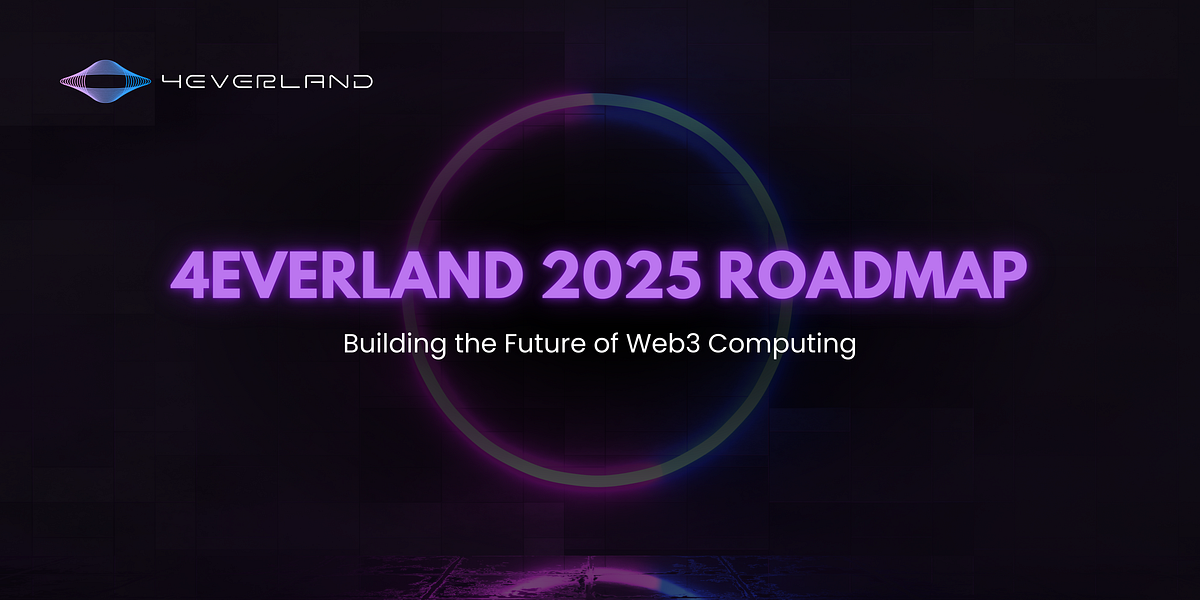
a year ago
4EVERLAND's Vision for 2025: Empowering Web3 Through Innovation
As we enter 2025, 4EVERLAND is poised to enhance its commitment to empowering Web3 developers and the global community through innovative decentralized technology. Building on the successes of 2024, which included scaling partnerships with leading protocols and launching advanced AI services, 4EVERLAND is focused on delivering cutting-edge infrastructure that supports the Web3 ecosystem. The upcoming year promises to be transformative, with a clear mission to enhance offerings and foster a community-driven approach as the company continues to BUIDL.
In the first quarter, 4EVERLAND will introduce the 4EVERBoost aggregator platform, designed as a one-stop Dapp launch solution for Web3 developers. This platform aims to streamline the application deployment process, allowing developers to optimize workflows and reach their target audiences efficiently. Additionally, the company plans to deepen partnerships with key players such as zkSync, Arbitrum, and Optimism, enhancing protocol interoperability to improve the overall developer experience and attract more projects to the 4EVERLAND platform.
As the year progresses, 4EVERLAND will launch a decentralized AI model marketplace in the second quarter, facilitating seamless integration of AI computing resources for developers. The introduction of the AI Worker will further simplify the deployment of large-scale AI models. In the third quarter, the open version of the 4EVER Node Network will empower community members to contribute idle resources, enhancing scalability and reliability. Finally, the fourth quarter will see the formation of a DAO, allowing token holders to participate in governance, thereby increasing transparency and community involvement in decision-making processes. Overall, 2025 is set to be a year of innovation and collaboration for 4EVERLAND, solidifying its role in the Web3 landscape.
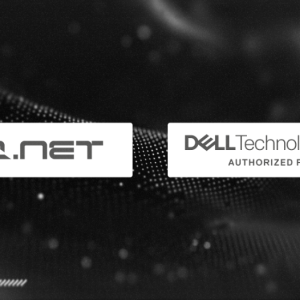
a year ago
io.net Joins Dell Technologies Partner Program to Enhance Decentralized GPU Solutions
io.net, a prominent player in the decentralized physical infrastructure network (DePIN) for GPUs, has recently joined the Dell Technologies Partner Program. This strategic alliance is designed to enhance io.net's business development, sales, and marketing efforts. As an authorized partner and cloud service provider, io.net aims to integrate its decentralized GPU network with Dell's robust infrastructure, providing scalable and cost-effective solutions tailored for emerging technologies such as artificial intelligence (AI), machine learning (ML), and high-performance computing (HPC). Tausif Ahmed, VP of Business Development at io.net, emphasized that this partnership marks a significant milestone for the company, positioning it as a leading solution provider in the AI, ML, and HPC sectors.
The Dell Technologies Partner Program is an international initiative that equips partners with essential business development, sales, and marketing resources. By joining this program, io.net gains access to a wealth of resources that will facilitate the expansion of its decentralized GPU network and enhance its market capabilities. This collaboration not only allows io.net to strategize with other partners but also extends its global reach, enabling the deployment of solutions that seamlessly integrate decentralized GPU power with Dell's reliable hardware infrastructure. The partnership is expected to bolster io.net's go-to-market efforts and co-marketing activities, ultimately benefiting enterprise customers seeking advanced computing solutions.
As the demand for scalable and efficient compute services continues to rise in the AI and ML industries, io.net's decentralized network offers a compelling alternative to traditional cloud service providers. By providing on-demand GPU clusters that can be deployed rapidly and at a lower cost, io.net addresses the bottlenecks faced by organizations in AI development. The partnership with Dell is set to democratize access to decentralized compute solutions, particularly for enterprises engaged in AI training, inference, and HPC use cases. With Dell's global presence and trusted reputation, io.net is well-positioned to accelerate the adoption of these innovative solutions across various industries.
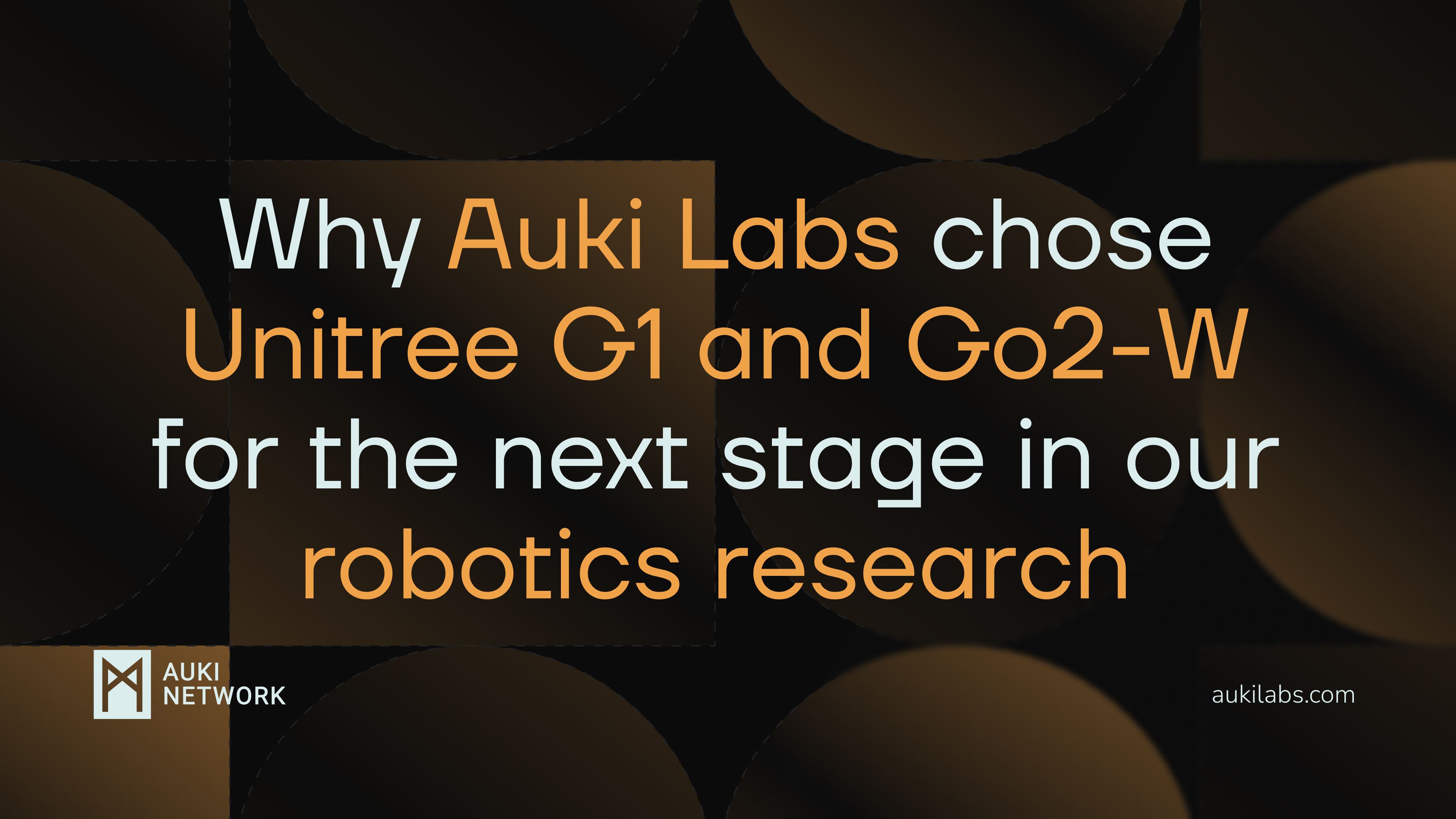
a year ago
Auki Labs Unveils Posemesh: A New Era for Collaborative Robotics
In the realm of robotics, the challenge of enabling multiple robots to collaborate effectively in shared spaces has been a significant hurdle. Auki Labs is addressing this issue through the development of the posemesh, a shared spatial map that enhances how robots perceive and interact with their environment. Currently, most spatial maps lack contextual information, providing only geometric data without meaningful object labels. This limitation forces robots to rely on computationally intensive processes for object recognition, which slows down decision-making and limits the scalability of autonomous systems. By introducing the posemesh, Auki Labs aims to streamline this process, allowing robots to operate more efficiently with reduced computational demands.
The Unitree G1 and Go2-W robots are at the forefront of this innovation, serving as ideal platforms for deploying the posemesh. With their advanced sensors and mobility, these robots can navigate pre-built spatial maps effectively. The posemesh facilitates a shared understanding among robots, enabling them to coordinate movements and allocate tasks without the need for each robot to independently process its environment. This collaborative approach not only enhances efficiency but also minimizes redundancy, ultimately leading to improved robot-to-robot communication and more scalable systems across various industries.
Auki Labs envisions a future where robots can adapt to environments in real-time, overcoming computational bottlenecks and working together seamlessly. By investing in the posemesh and advanced robotic platforms, the company is pioneering a smarter approach to robotics and AI. This initiative is crucial for the widespread adoption of robots in mixed or hybrid environments, as it unlocks the potential for collaborative fleets that are greater than the sum of their parts. As Auki Labs continues to innovate, the promise of a more interconnected and efficient robotic future becomes increasingly tangible.
Signup for latest DePIN news and updates